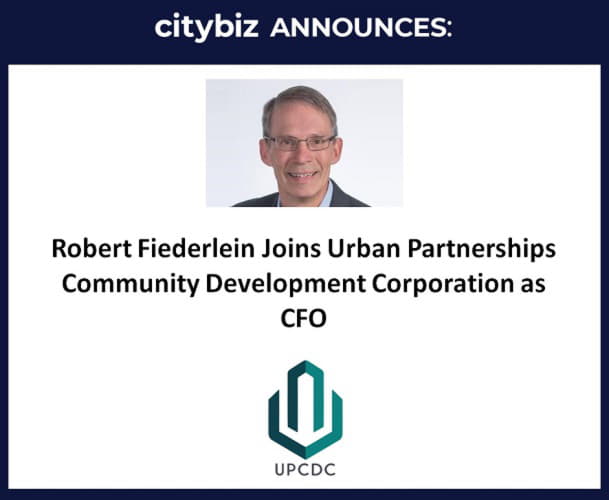The pandemic has forever changed the world, and online dating went from a growing trend to a necessity. With lockdowns and stay-at-home orders severely curtailing in-person dating, dating apps became the best way to meet prospective partners. No company is bigger in the digital dating space than Match.com (NASDAQ:MTCH). The online matchmaker reported robust growth for the fourth quarter.
On this clip from Motley Fool Live recorded on Feb. 5, "The Wrap" host Jason Hall, Fool analyst Nick Sciple, and Fool.com contributors Danny Vena and Brian Withers discussed the results and the surprisingly strong tailwind that will drive the company for years to come.
Where to invest $1,000 right now
When investing geniuses David and Tom Gardner have a stock tip, it can pay to listen. After all, the newsletter they have run for over a decade, Motley Fool Stock Advisor, has quadrupled the market.*
David and Tom just revealed what they believe are the ten best stocks for investors to buy right now… and IAC/InterActiveCorp made the list -- but there are 9 other stocks you may be overlooking.
*Stock Advisor returns as of November 20, 2020
Jason Hall: Nick, this is a company that you've been very bullish on for a long time. Tell us about Match and tell us what happened this quarter.
Nick Sciple: Yes. Sure. Match, I've owned the stock since, I guess February or March last year. I followed it for long time. Really got excited about it when I read the Tyro Partners dating paper @SuperMugatu here on Twitter, you can check him out. I think anybody who is interested in the space in general or you're interested in Match or Bumble that's coming public, you should read their online dating paper.
But essentially, the thesis on Match's three points for me. Number one, online dating is going to be how people meet in the future. If you read that paper, essentially two-thirds of how new couples form today are meeting online, maybe even more than that.
Second, Match Group controls essentially every platform of significance in online dating, so they own Tinder, the highest-grossing app on the App Store, most downloaded app on the App Store. Match, Plenty Of Fish, Hinge. and numerous other platforms. If you're online dating with the exception of Bumble, you're on Match Group's platform.
Then third, like Jason said, thirsty dudes are the primary customer here or because of the nature of how Match's work and how people swipe and all those sorts of things, the primarily paying customers on the platform are men and if you know anything about men, men who want to find a date will pay what they need to do to be in the place where the potential dates are. That's the thesis for the company today.
It's a $42 billion market cap company. If you believe like I do that online dating is going to become an even more significant part of how couples are formed going forward, and I do, I think $42 billion is a lot lower than where it will end up in the long term.
Like Jason said, just reported earnings this week high-level takeaways, revenue up 17% year-over-year to $2.4 billion. Main driver of that is Tinder, as I said earlier. Tinder revenue, $1.4 billion for 2020, 18% increase year-over-year. Business still continuing to produce numbers even despite the pandemic and lockdowns.
Essentially, regular dating was canceled. If you wanted to keep dating, you had to keep a relationship with Match. That's not to say that their platforms haven't been impacted by the pandemic. You actually saw average revenue per user for Tinder decline in the fourth quarter. Part of that is just continued COVID lockdowns in some markets, particularly internationally, they say has slowed down some a la carte spending on Tinder. They were also delaying their Tinder platinum service that they are going to rollout for their higher paying members. For those two reasons, average revenue per user down a little bit.
Just to tell you, talk about the thirsty dudes idea and what people are willing to pay. These a la carte features, one of them is read receipts. You can pay to see whether someone has read a message that you have sent to them. Whether they ever read the message and haven't decided to respond yet. This is the level at which people are willing to spend.
Anyway, a little bit of a slowdown on those a la carte spending for Tinder. But what's really exciting is these other parts of the business really firing on all cylinders still driving some growth. The non-Tinder brands up 16% year-over-year and average revenue per user. All non-Tinder brands, increased average revenue per user in the fourth quarter. Direct revenue from those non-Tinder brands up 28% in the fourth quarter.
You're really at this point where these other brands other than Tinder are starting to drive the business forward. Hinge is really the number two right now that's really coming forward. Full-year revenue up three times what it was in 2019, downloads up 63% year over year.
The company really doing what you would expect them to do, continuing to deliver growth. A little bit of concerns around Tinder because of some of the lockdowns, but we're seeing growth from some of these other brands that suggests this portfolio strategy that they've had is working and it's allowing them to maintaining momentum even when there's some challenges in other parts of the business. Those are the high-level takeaways stuff I pulled from the earnings report.
Jason Hall: Awesome. Okay. One question our good friend, Danny Vena, sent to me earlier that I think maybe to mention right now, and then we can get it a little bit more about Match. Bumble is going public here in a couple of weeks. How does that factor in?
Nick Sciple: Bumble, I haven't looked as closely to the S-1 as I would like. But yeah, Bumble is a challenger in the space. I think the valuations they wanted to come out with was somewhere in the range of eight billion compared to Match in the $40 billion range.
Bumble, very different approach relative to Match, Bumble just has that one property focused around women message first on that platform. I think there can be lots of winners, just like how I don't think the fact that Pinterest (NYSE:PINS) is being successful, is somehow some threat to how successful [Facebook's (NASDAQ:FB) Instagram or [Snap's (NYSE:SNAP)] Snapchat or some of these other platforms can be.
I think the same is true in online dating. You see that with Match. They have all these different properties all over the place, their portfolio strategy is what they're using. I think Bumble can be incredibly successful and Match can be successful as well. I think this is a rocket ship, this whole online dating subsector. I think it's only going to get bigger and bigger year-over-year, so there's going to be lots of winners.
Brian Withers: Nick, what should investors watch going forward with Match?
Nick Sciple: I think for me, to just common sense. I'm 28 years old, what I'm going to be watching is my friends. [laughs] What are they using to date? If you're a little bit older, I would be watching what your sons and daughters are using to date.
The big thesis for me with online dating is, if you talk to anyone in their 20s today and you ask them, "All right, do you have an online dating profile?" The answer is yes, particularly over the past year because if you wanted to date, that's all you can have.
But I think if you don't have an online dating profile today, you're a structural disadvantage in dating as someone who is single. I think what I would be paying attention to, if I'm someone who still has friends that are in the primary dating market, I'd be talking to my friends that are doing that, I'm getting married in the summer so I'm not on any of these platforms, but lots of my friends are. I'm going to talk to them. If they're continuing to use these platforms that they have in the past, I think this thesis still intact. Those are the main things that I'll be paying attention to, stuff in the real world, the stuff that Peter Lynch would tell you to pay attention to.
Danny Vena: Nick, after you had a chance to look at Match's most recent quarterly earnings, what's the big thing that stood out to you? What's the big takeaway for investors?
Nick Sciple: I think the big takeaway is just that some of these other non-Tinder brands are delivering significant growth such that I think we can tell the story where it's not just a Tinder story anymore, there's lots of other brands that are showing potential to succeed. Tinder is still a significant portion of revenue for the business. If for some reason, you snap your fingers and Tinder goes away, obviously the story changes in a really significant way. But you're seeing enough progress in these other parts of the business that you can see they're on our trajectory to where this is going to be multiple properties driving the business going forward. I think, Hinge, in particular is going to be massive. I just think that's the big takeaway that these other brands have some staying power to pick up some slack when Tinder maybe isn't firing on all cylinders.






